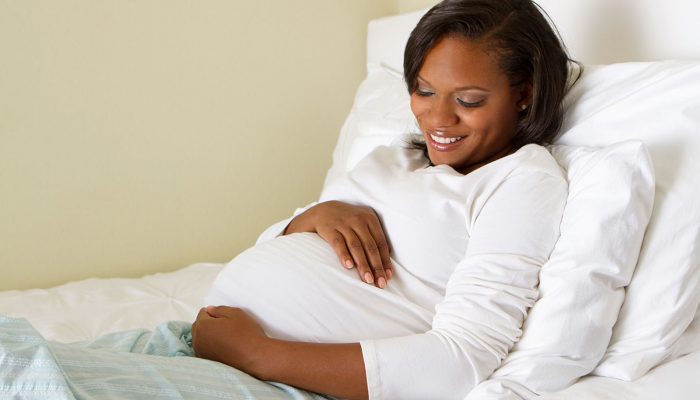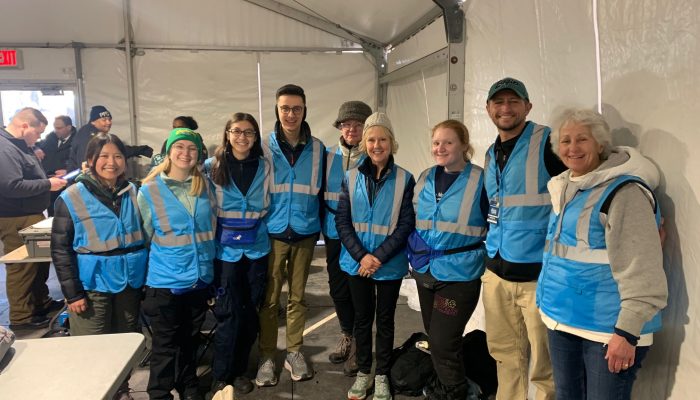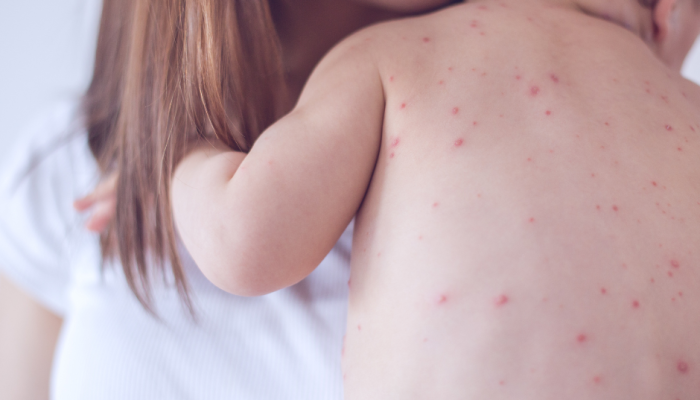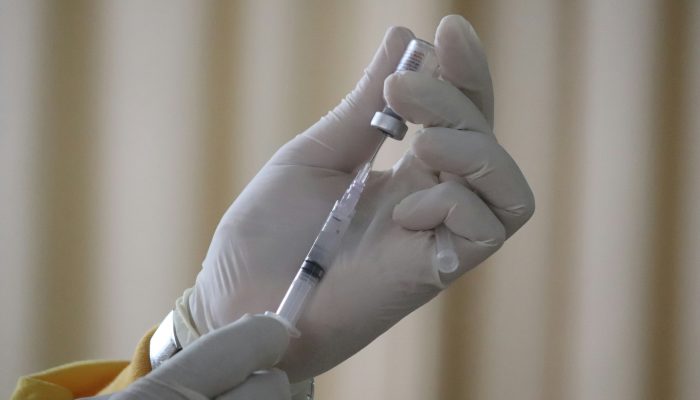Black Maternal Health Week, founded by Black Mamas Matter Alliance, is celebrated this week by the Health Department and our Division of Maternal, Child, and Family Health. It’s a week that is especially important to us because it focuses on awareness, activism, and community building to amplify the voices, perspectives, and lived experiences of Black Mamas and birthing people. Partnering with Black Mamas Matter Alliance, OSHUN Family Center serves as Philadelphia’s regional leader in organizing Black Maternal Health Week.
This year’s theme, Healing Legacies: Strengthening Black Maternal Health through Collective Action and Advocacy, emphasizes the power of Black-led perinatal, maternal, and reproductive health organizations to drive systemic change and foster community healing. That theme acknowledges the persistent legacies of systemic oppression, reproductive injustices, and health inequities that have disproportionately affected Black Mamas and people. It also emphasizes the need for healing at individual and community levels while addressing the need for restorative approaches to maternal health care.
Black Maternal Health in Philadelphia
Significant racial inequities exist among pregnancy-related deaths in Philadelphia as Black women are 4 times more likely to die from pregnancy related causes than white women. Compared to their non-Hispanic white counterparts, non-Hispanic Black birthing people in the U.S. are more than twice as likely to experience a severe maternal morbidity (serious, sometimes life threatening, complications related to labor and delivery that can have both short- and long-term impacts on the health of a birthing person and their baby). In addition, birthing people ages 40 and older have much higher rates of severe maternal morbidity compared to those in their 20s and 30s.
What is Philadelphia doing about this?
At the center of the Health Department’s programming is Organized Voice for Action or The OVA, which is the City’s formal, cross-sector initiative to eliminate preventable maternal deaths and reduce severe maternal morbidity, particularly among Black birthing people. The OVA builds on over a decade of local maternal death reviews conducted by the Philadelphia Maternal Mortality Review Committee (MMRC), transforming those findings into coordinated action.
The OVA operates through three key pillars:
- Implementation Teams bring together clinical and community leaders to act on key priority MMRC recommendations. This includes new clinical guidelines, universal intimate partner violence screening in hospitals, and mini-grants to support Black-led community-based organizations advancing maternal health equity and strengthening support for people with perinatal substance use disorders.
- Community Education ensures that knowledge and responsibility are shared and not placed solely on birthing people. Through city-wide campaigns, trainings co-lead by lived experienced experts, and educational tools, we raise awareness about postpartum warning signs, maternal mental health, and the role of structural racism in maternal mortality.
- Building Bridges allows healthcare, public health, and Medicaid partners to convene, break down silos and align around best practices, such as launching Heart Safe Motherhood across hospitals and improving reimbursement for maternal care innovations.
These efforts are overseen by MMRC and our Severe Maternal Morbidity (SMM) surveillance program. Philadelphia is home to the nation’s first and only City-level SMM surveillance system. Together, these data-driven initiatives shape every aspect of The OVA’s work, ensuring that we not only respond to maternal deaths but prevent them in the first place.
This formal infrastructure is complemented by a network of public health programs that address key social and clinical drivers of maternal health:
- The Community Doula Support Program offers free, culturally responsive support during pregnancy, labor, and postpartum for families, particularly those with a history of substance use disorder.
- The Healthy Start Doula Program pairs birthing people in select zip codes with doulas and case managers who co-create care plans that address medical, emotional, and social needs.
- Philly Families CAN is a centralized intake for home visiting programs across the City that provides personalized support to people who are pregnant, helping them access the resources and care needed for a safe and healthy pregnancy.
- The Philly Joy Bank, one of the first guaranteed income programs for pregnant people in the country, provides $1,000 per month in unrestricted cash to eligible pregnant and postpartum Philadelphians for 18 months, allowing families to use the money however they need, with dignity and autonomy.
Together, these efforts reflect Philadelphia’s deep commitment to birth justice, which is the belief that everyone deserves to give birth safely, while being treated with dignity, and experiencing joy – not trauma – in pregnancy and parenting.
Why is Black Maternal Health Week important to us?
“To me, Black Maternal Health Week is a time to uplift our experiences, share what we’re seeing through our findings, and push for interventions that reflect the current challenges while centering the full person and the supports around them.” – Keshia Montgomery, MMRC Coordinator
“To me, Black Maternal Health Week means advocacy, awareness of Black Maternal Health, activism and action, community, Black mothers’ voices being heard and JOY!” – Imani Davis, OVA Lived Experience Expert
“Black Maternal Health Week is important to me because it brings awareness to both the challenges and joys of being a black mom. The week follows closely after March’s Women History month, precedes Mother’s Day in May and Black maternal breastfeeding week in August. All chances to celebrate parts of my womanhood. Concretely, we can review the previous year’s progress on our concerns, requests and advancements. Personally, we can collectively celebrate other black moms for another year of keeping ourselves (and the children) safe, happy, and healthy.” – Roxanne Green, OVA Lived Experience Expert




